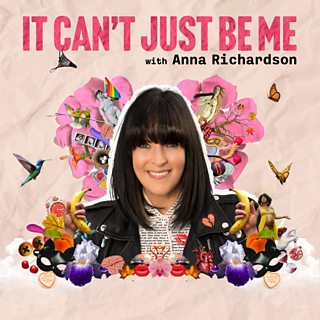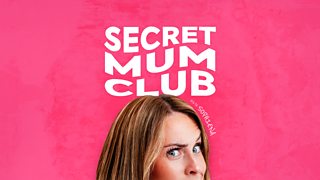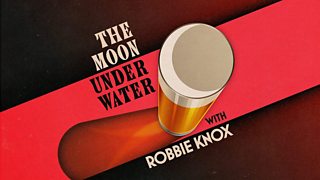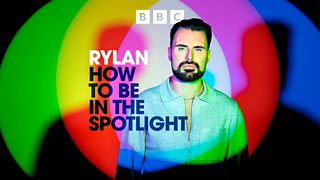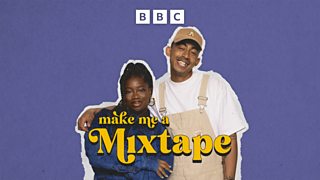Coming Back from Self Destruction with Jordan Stephens
This article contains mention of illegal drug use.
On this episode of It Can’t Just Be Me, Anna Richardson interviews Jordan Stephens, the multi-talented musician, actor, and author.
They delve into his journey navigating ADHD, overnight fame with Rizzle Kicks, and profound personal challenges. Here are eight things we learned …

He used to think the past was literally black and white.
When he was a youngster, Jordan Stephens thought the 1950s and all that came before it life was monochrome, like in old films. He figured this changed when “colour was invented” around the 60s, like in the Wizard of Oz. To his child mind, this also explained the world wars. “I just assumed people were fighting because there wasn't any colour!”
He writes as an escape.
“I find that in my life I write often as a means of escape or survival,” he says. “If I'm feeling a particular way and I feel overwhelmed with a particular feeling, then I'll write it down as an attempt to process it.”
His book has long been in the works.
In 2017, Jordan wrote an article for The Guardian on his experiences of toxic masculinity, which brought new opportunities. “It really resonated with a bunch of people. From then, I'd just been offered things. A book agent and other companies in the media space offered me the opportunity to write about masculinity. But at the time, I didn't feel like I knew really anything other than I was confused about my experience growing up. So for three years, I would have these meetings and I would go, ‘Cool, let me write this.’ And then it would never come to anything.”
He doesn’t like passive aggression.
It’s a trait of British culture that Jordan finds “deeply toxic”. “If you look at say, the Italian culture, where they're shouters – it's not a problem. They understand that I'm going to shout at you because I'm either passionate about something, I'm happy, or I'm angry, and you're not getting judged for that. Whereas here, we are judged for just expressing that.”
Rizzle Kicks weren’t actually an overnight success.
It may have seemed like Jordan Jordan’s hip hop duo with Harley Alexander-Sule came from nowhere when they found success in the early 2010s. That’s not the case, he says. “Some people think we are an industry plant, that we were manufactured – but we were performing to like 20 people in Brighton with the same music [for two or three years]. In 2011, in one month, we entered into the charts with trumpets at 144 which was mind blowing. By the end of that month, we were number eight. And we were number eight for like, two months. So suddenly our anonymity was gone. Life turned on its head.”
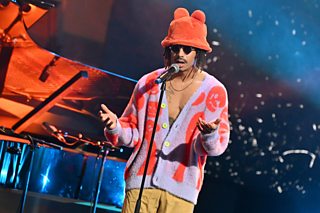
Drugs became a coping mechanism for fame.
As his profile grew, he became overwhelmed. “I'd be playing FIFA with my friends in our front room. Then I'd be going to an event, and I'd see the footballers I was playing with there. And that became such a terrifying experience. Once, someone gave me a line, and [then] I wasn't as scared.” Before long, he was using cocaine more often. “The second I did Coke, I would gain this razor sharp focus. I started doing it at home alone. I realised that if I could channel that focus into writing or making music, I would create loads. So I ended up falling into a problematic use of cocaine. I was saying no to parties. Sometimes, I'd be booked for a studio session in a family home at like 11 in the morning, and I would do coke before I went.”
He doesn’t think he’s a good person – because he doesn’t believe in the concept.
“I really don't agree with our concepts about what is good and bad,” he says. “I think I'm a human being who's capable of making good choices and bad choices, and I do my best every day. I try to be kind and move with grace. Every person has a shadow, yin and a yang.”
He LOVES dogs.
They even made it into the title of his book: Avoidance, Drugs, Heartbreak and Dogs. “When they look at you, they are in love with you,” he says. “[They’re] just buzzing: buzzing to walk, buzzing to eat, buzzing to see you. But for me, the reason why I include dogs in the title and in the book is because when I rescued my first dog, Spike, it was a big shift for me, in terms of understanding love. It pulls love back to its most simple kind of transactional space. You feed me and don't treat me badly, and we get joy together.”
-
![]()
Secret Mum Club
Welcome to the Secret Mum Club, the ultimate space for all mums to share their secrets.
-
![]()
The Moon Under Water
Landlord Robbie Knox and his trusty regular, Dan Trelfer, are joined by a special guest to create their perfect pub.
-
![]()
Rylan: How to Be...
The good, the bad and the ugly of what it's like to be thrust into the public eye – with those who've lived to tell the tale.
-
![]()
Make Me A Mixtape
We're on a mission to build the ultimate mixtape and we need YOU to set the theme.
